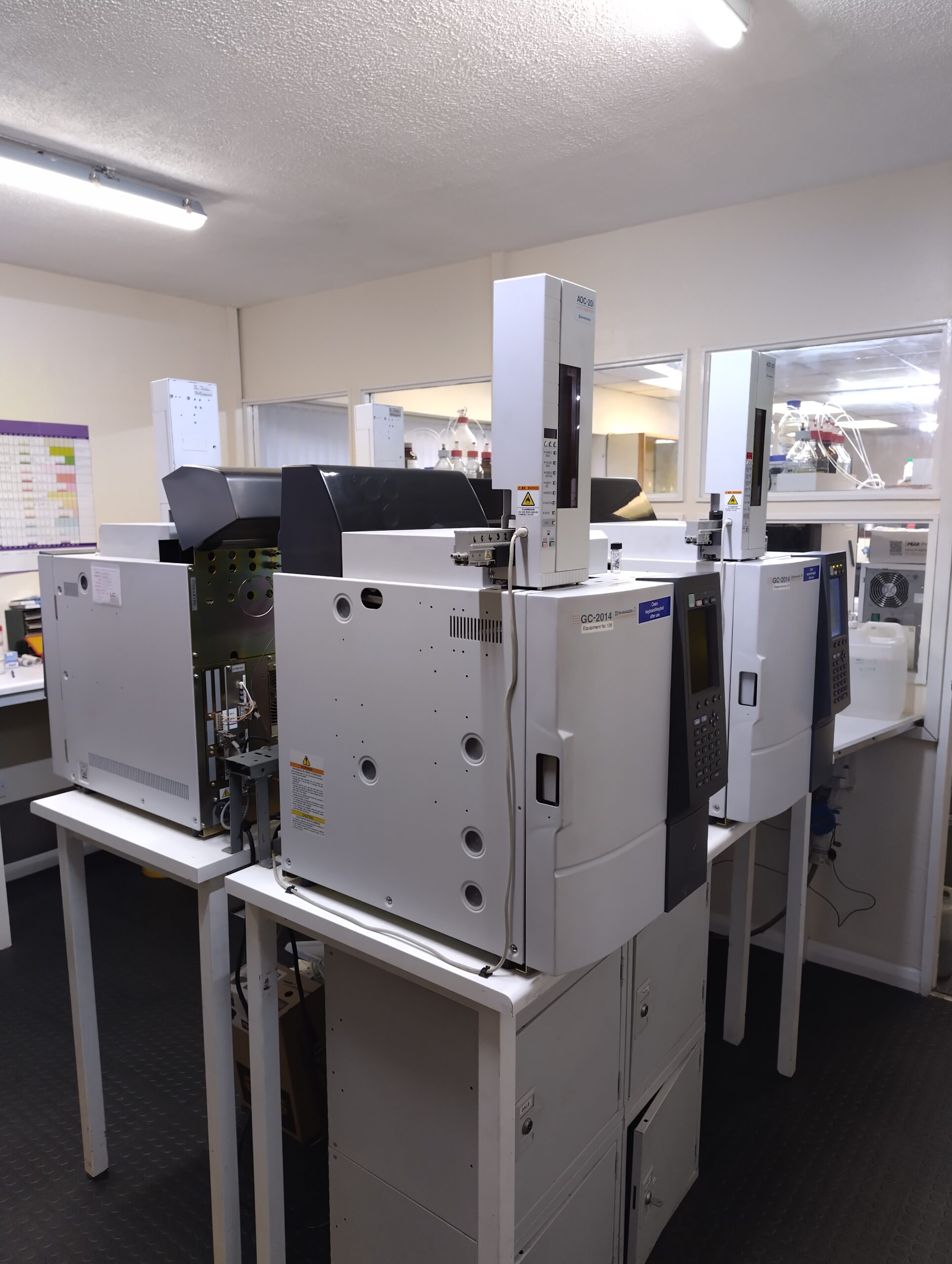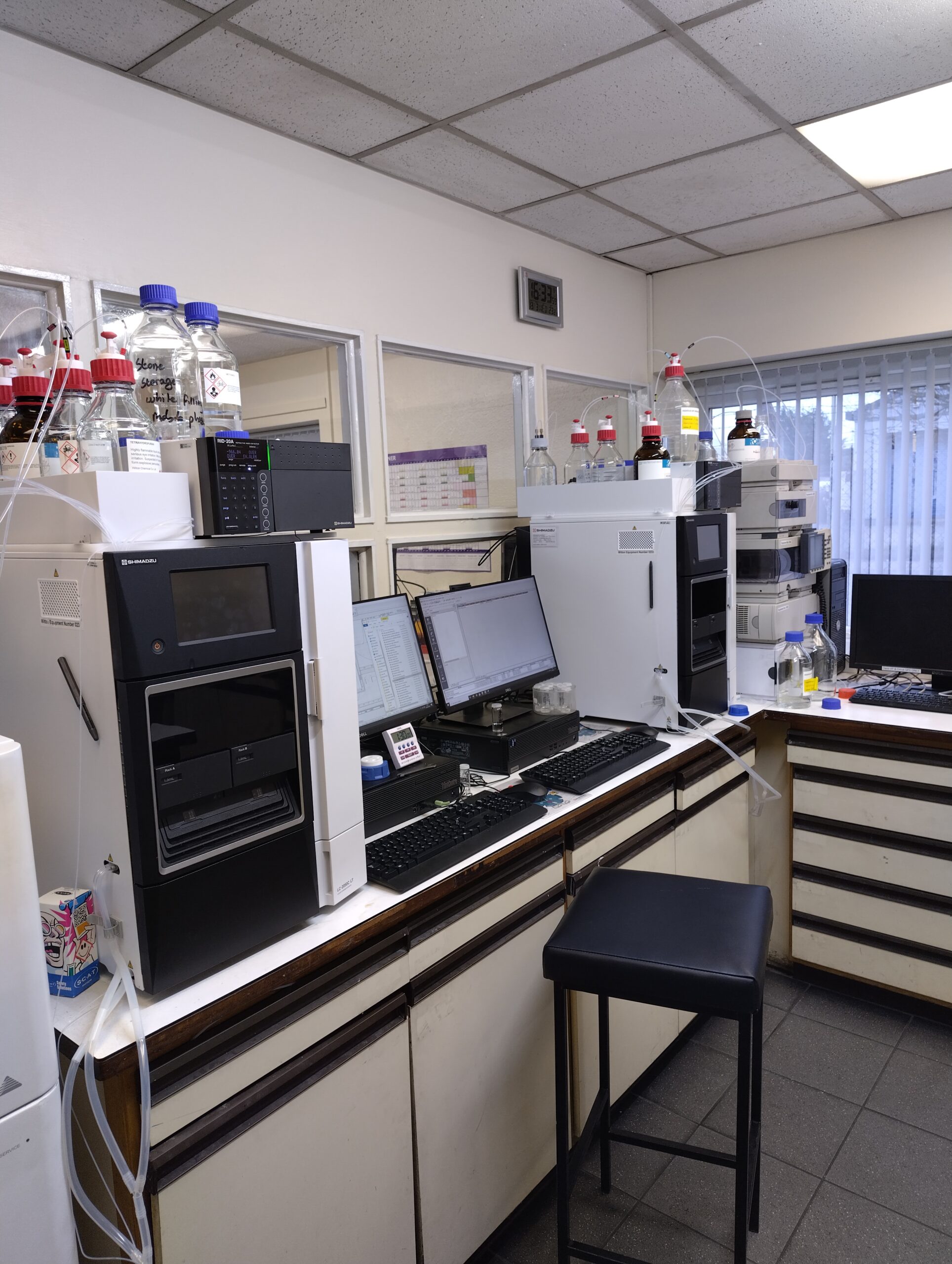+44 (0) 1638 716001
Analytical Facilities at Witton Chemical
Witton’s analytical laboratory provides 24-hour support to the manufacturing facilities. The laboratory performs in-process analysis, as well as analysis of final products and raw materials, to ensure the highest possible quality of goods manufactured.
The Quality Control Laboratory is well resourced with analytical equipment and techniques including Gas chromatography (GC) for measuring volatile components and residual monomers; High Performance Liquid Chromatography (HPLC) to characterise chemicals and Gel Permeation or Size Exclusion Chromatography (GPC / SEC) to determine the molecular weight of polymers. We have UV/visible and Fourier-Transform Infra-Red (FTIR) Spectrometers , Auto-titration systems for pH, potentiometric and Karl Fischer titrations; Viscometers, Colorimeters and Turbidity Meters; pH Meters and Flame Photometry instrumens. Our instrumentation is sourced from major manufacturers such as Shimadzu and Metrohm.
We are skilled at following the course of polymer reactions by viscometry as well as measurement of the monomer levels and residual solvent levels by GC, HPLC and titrations. Similarly, we can measure the reactants in traditional reactions using HPLC, GC and titration.
Extensive experience has been gained in the characterisation of polymers and prepolymers including Molecular Weight, Hardness, Viscosity, Colour, Turbidity, Residual monomer content, Total solid content, and Functionality including Isocyanate content (NCO) and acid value.
Our Analytical Scientists have diverse backgrounds and extensive analytical experience. As such they can assist in the transfer, validation and development of analytical techniques to support processes transferred for contract production at Witton Chemical Company.
Our instruments are serviced by the manufacturers, or suitable qualified third parties. The calibrations are carried out so that the measurements are traceable to national and international standards, such as NIST.
Our partnerships with specialist laboratories provide access to a wide range of additional techniques that can be utilised when appropriate.




